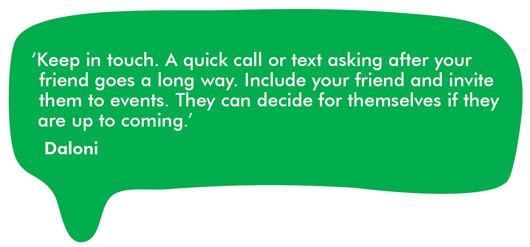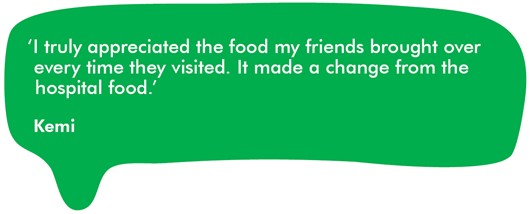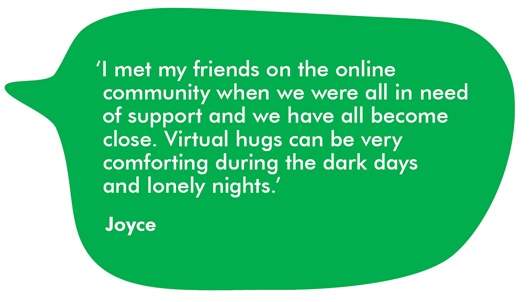Yesterday the UK celebrated International Friendship Day. It is not only partners and families that can be affected emotionally when someone has cancer. Having a friend with cancer can bring up a range of feelings when your friend is diagnosed and as they go through treatment. Supporting someone with cancer may be something new to you, but there is no one way to get it right. With the help of some of our cancer information reviewers, editorial assistant Amy-Louise discusses some ways that you can be there for a friend facing cancer.
You might not know what to say when your friend has been diagnosed with cancer. You might worry about saying the wrong thing, or upsetting them. But sometimes one of the best ways you can help is to listen to what your friend has to say. Listening can help you be more supportive and understand what your friend needs. Our booklet Talking with someone who has cancer can help you feel more confident about talking with your friend and gives tips on how to be a good listener.
It is also important to make sure you keep in touch with your friend. Remember to keep inviting them to social events just like you did before they had cancer. Even if they don’t feel up to coming, they might appreciate being asked. There are also other ways you can keep in touch and let your friend know you are thinking of them. This could include visits, sending notes, cards or eCards, or talking to them on social media. It really is the thought that counts.

There are also practical ways that you can support a friend with cancer. Things like offering to help with childcare, providing lifts to and from hospital or cooking for them could make a big difference. Try to be specific. Rather than saying, ‘Let me know if there is anything I can do’, you could ask ‘Shall I help with the cleaning?’. It might be that your friend finds it hard to accept support as they are not ready to receive help. Or they might wish to remain independent. Don’t push your friend into accepting help if they don’t feel ready for it just yet.

As a friend of someone with cancer, you may be coping with difficult emotions of your own. It is important to look after yourself and get the support you need. You might want to contact a support organisation or counselling service where you can talk about how you feel. We also have a support line that could both you and your friend. It is free to call on 0808 808 00 00.
You may also want to join an online support group or chat room for people affected by cancer. Our online community is a site where you can chat to other people who are in the same position as you and make friends. They have a group for friends and relatives affected by cancer. You can also signpost your friend to the online community for further support for them, so that they can talk to other people in the same situation.

We have further information on talking with someone who has cancer, being there for someone facing cancer, and coping when someone close to you has cancer.
Remember that your friend is still the person they were before the cancer. Whatever they do or want to decide, it is important to support them while looking after yourself too.
To see what else Macmillan's cancer information team has been blogging about, please visit our blog home page! You can subscribe to receive our blogs by email or RSS too.
We're with you every step of the way
The Macmillan team is here to help. Our cancer support specialists can answer your questions, offer support, or simply listen if you need a chat. Call us free on 0808 808 00 00.
Comments? Feel free to add them below (you need to be logged in).
Keep in touch Follow Macmillan’s cancer information team on Twitter @mac_cancerinfo
Whatever cancer throws your way, we’re right there with you.
We’re here to provide physical, financial and emotional support.
© Macmillan Cancer Support 2025 © Macmillan Cancer Support, registered charity in England and Wales (261017), Scotland (SC039907) and the Isle of Man (604). Also operating in Northern Ireland. A company limited by guarantee, registered in England and Wales company number 2400969. Isle of Man company number 4694F. Registered office: 3rd Floor, Bronze Building, The Forge, 105 Sumner Street, London, SE1 9HZ. VAT no: 668265007